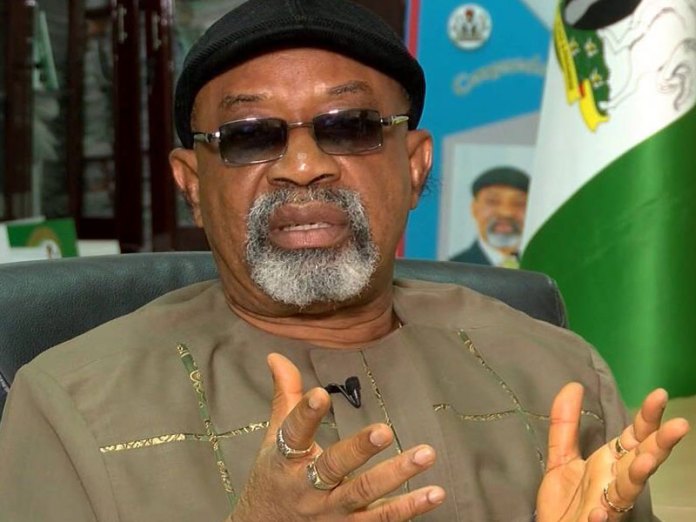Nigeria attracted a record $3.38 billion in foreign investments during the first quarter of 2024, the highest quarterly inflow in four years.
This surge in investments is largely attributed to reforms implemented by the Central Bank of Nigeria (CBN), as revealed in the latest capital importation report by the National Bureau of Statistics (NBS).
The report highlighted a 210.2 percent increase in foreign investments from the $1.09 billion recorded in the previous quarter.
Year-on-year, foreign capital inflows rose by an impressive 198.1 percent from $1.13 billion in Q1 of 2023.
Analysts point to several key reforms by the CBN that have boosted investor confidence. These include the harmonization of the foreign exchange rate market, the clearance of forex backlogs, naira devaluation, and high interest rates aimed at curbing inflation.
These measures have collectively sent positive signals to investors, prompting a significant increase in capital inflows.
Portfolio investment was the largest contributor to the foreign investment surge, accounting for $2.08 billion, or 61.5 percent of the total.
Other investments followed, with $1.18 billion (34.9 percent), while foreign direct investment (FDI) lagged behind, contributing only $119.2 million (3.53 percent).
Money market instruments under portfolio investment saw a dramatic increase, surging by 592.7 percent to $1.61 billion in Q1 from $231.8 million in Q4. Compared to Q1 of the previous year, this represents an astonishing rise of 1,175.2 percent.
“On the money market front, open market operations (OMO) were the major contributors. Foreign investors were attracted to the over 25 percent yield for a carry trade in naira while managing the attendant FX risks,” explained Temitope Omosuyi, investment strategy manager at Afrinvest Limited.
The CBN is also expected to receive a $1 billion loan from Afrexim as part of a $3.3 billion inflow from a commodity swap deal.
This anticipated inflow further shows the growing confidence in Nigeria’s economic prospects.
Foreign inflows into stocks jumped fivefold in the first three months of the year to N93.37 billion from N18.12 billion in the same period last year, the highest in any three-month period since 2019.
“The CBN’s reforms have transformed Nigeria from being uninvestable a year ago to an attractive investment destination today,” commented a foreign portfolio manager who preferred to remain anonymous. “The settlement of the FX backlog, shift to a more market-determined exchange rate, and a more credible monetary policy are proving too hard to resist for investors.”
The NBS report also showed that the banking sector recorded the highest capital inflows with $2.07 billion, representing 61.2 percent of the total.
This was followed by the trading sector, valued at $494.9 million (14.7 percent), and the production/manufacturing sector, which attracted $191.9 million (5.68 percent).
Geographically, the capital importation report revealed that most of the investments originated from the United Kingdom, contributing $1.81 billion (53.5 percent).
The Republic of South Africa followed with $582.3 million (17.3 percent) and the Cayman Islands with $186.2 million (5.52 percent).
Lagos State emerged as the top destination for foreign capital, receiving $2.78 billion, or 82.4 percent of the total capital imported. It was followed by Abuja (FCT) with $593.6 million (17.6 percent) and Ekiti with $0.01 million.
Stanbic IBTC Bank Plc received the highest capital importation into Nigeria with $1.26 billion (37.2 percent), followed by Citibank Nigeria Limited with $547.7 million (16.2 percent), and Rand Merchant Bank Plc with $528.7 million (15.7 percent).
Despite the positive outlook, experts caution against celebrating too early. Adeola Adenikinju, president of the Nigerian Economic Society, said, “While foreign portfolio investment (FPI) is on the rise, it is crucial to ensure these inflows translate into foreign direct investments (FDI) that generate employment and reduce poverty. FPI may not necessarily create the same long-term economic benefits.”
President Bola Tinubu, who assumed office in May 2023, has taken significant steps to attract foreign investment, including the removal of petrol subsidies and partial foreign exchange reforms.


 Billionaire Watch3 weeks ago
Billionaire Watch3 weeks ago
 Startups4 weeks ago
Startups4 weeks ago
 News4 weeks ago
News4 weeks ago
 News4 weeks ago
News4 weeks ago
 Bitcoin4 weeks ago
Bitcoin4 weeks ago
 Naira4 weeks ago
Naira4 weeks ago
 Forex3 weeks ago
Forex3 weeks ago
 Treasury Bills4 weeks ago
Treasury Bills4 weeks ago























